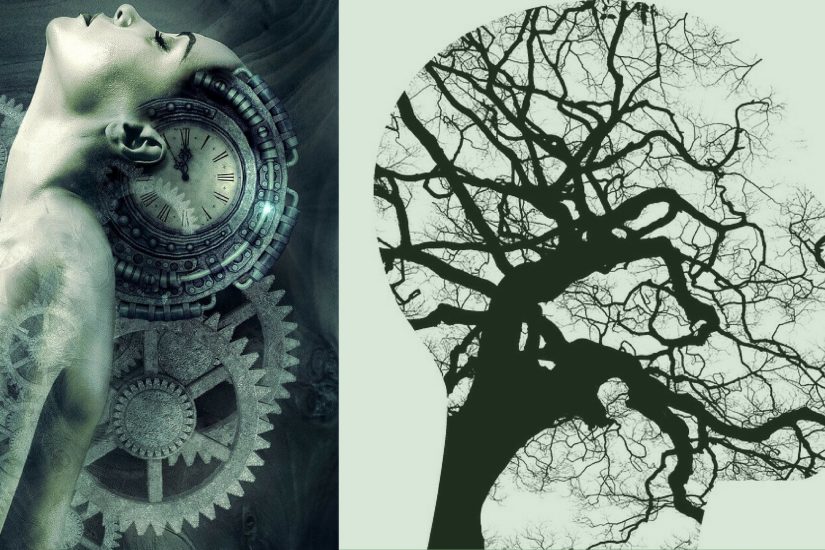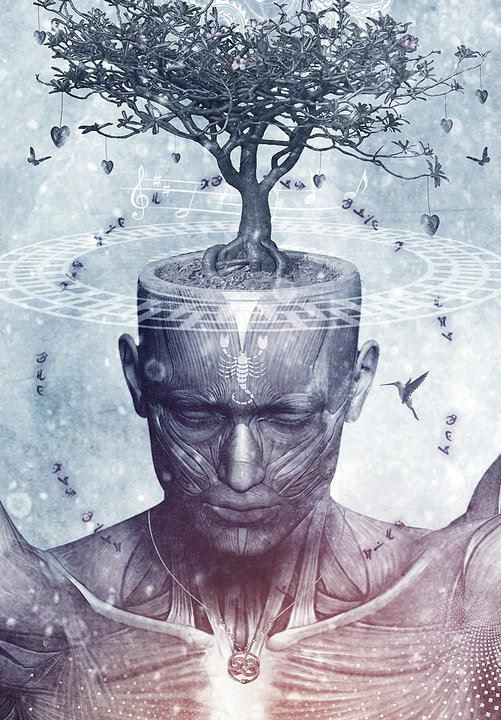You can be free of your genetic conditioning by becoming highly aware of the beliefs…

What is the difference between Counselling and Life-Coaching?
I know a lot of colleagues and friends that are in the life-coaching profession, whom I have a lot of respect for and whose work inspired and provoked this article on the differences and similarities between life-coaching and counselling.
My intention is to understand both the differences and similarities because coaches tend to compare their work to counselling in their description of what coaching is, however their comparisons don’t shed light on what coaches really do.
The tendency is to compare coaching to clinical therapy, not the kind of counselling that centres on personal development. Some coaches say that they focus on personal development while counsellors only work with healing the past. I even found a coach’s website that encouraged the prospective client to not waste time on counselling – that coaching was better.
Because of my deep respect for the coaches that I have worked with, it’s my intention to challenge the limited view on the differences between counselling and coaching. It’s important to note that there are fundamental similarities between both professions, with the difference being primarily structure and purpose.
The differences from the coaching perspective.
Most coaches I know offer a similar story about how coaching and counselling differ. They explain that coaching focuses on present and future goals, and establishing desired outcomes, while counselling attends to understanding the root cause of personal issues. Coaches apparently work with the conscious mind while counsellors work with the unconscious mind. I’ve also heard it said that coaches do not give advice, while counsellors do. I disagree.
In my counsellor training in 1998, my fellow students and I were taught to not give advice. The answers and solutions are part of the client’s intrinsic personal process. Counsellors also focus on the present and help clients set and attain goals, as well as work with both conscious and unconscious awareness, and help shed light on past conditioning.
Depending on what my clients bring to session, we may explore past conditioning to better understand their personal setbacks and establish a deeper connection with what is influencing current situations in their lives. We also uncover their present-day desires and inner resourcefulness, which naturally creates spontaneous changes in their lives, changes that have a direct effect on future probabilities.
Both professions, counselling and coaching, approach the client as naturally creative and resourceful.
In Counselling today, Jim Paterson states that the International Coach Federation (ICF) defines coaching as providing “an ongoing partnership designed to help clients produce fulfilling results in their personal and professional lives.” Paterson suggests that coaches “believe the client is naturally creative and resourceful. The coach’s job is to provide support to enhance the skills, resources and creativity that the client already has.”
In my work and the work of my colleagues in the counselling profession, partnering with clients is highly necessary as it establishes trust and safety. Also, honouring the creative process of healing and personal development helps clients believe in themselves, which enhances their quality of life. As a counsellor, I trust that my clients are intrinsically resourceful, and it is their resourcefulness that guides the processes in session.
When comparing coaching and counselling, I wonder if coaches are referring to psychiatry.
In the Erickson definition of the differences between coaching and counselling, they suggest that coaches assist client in finding their own solution while counsellors give diagnosis and treatment. They seem to be referring to psychiatry, not counselling.
The Erickson definition also suggests that coaches backtrack the client’s language to recap important words and phrases, while counsellors only paraphrase. Really, I only paraphrase? Back tracking a client’s language is called reflective listening. It is a basic person-centred therapeutic approach that most counsellors work with.
The difference with Coaching appears to be in the integration of person-centered approaches with consulting and personal development training.
Patrick Williams, a psychologist for 28 years who moved into the coaching profession in 1990, and who helped found the International Coaching Federation in 1995, believes that client-centered therapy was a “significant precursor to coaching.” In Counselling today, Paterson shares that Williams believes that Coaching takes the best of all counselling approaches to provide a new type of assistance. William advocates that, “Therapy is about uncovering and recovering, while coaching is about discovering.”
I’m really baffled by now. I must be part of a new breed of counsellors and should probably call myself a coach. I’m all for uncovering and recovering, and discovering.
Coaches help clients develop skills to increase productivity and effectiveness in their work and personal lives.
While the approaches used by coaches and counsellors overlap, I believe that it’s the structure and definition of the work that differs.
In my personal experience working with a life-coach, the coach works more with a defined set of tools for developing the clients skill and ability to be productive and effective in their work and personal life.
Erickson Coaching International suggests that coaches take the time to find out what success in life means to the client. They assist the client in clarifying their vision and the steps to get there, and helps them to discover a life of development and accomplishment, both personally and professionally.
Coaches focus on the conscious mind to provide life skills.
Life coaching focuses on the conscious mind to assist clients in accessing their rational processes and growing their life-skills. This can be very effective in distinguishing between emotional reactivity and mental strategies.
I recall a coaching session where the coach guided me into logically understanding a troubling issue, rather than continuing to circle around my emotional reaction. He helped me recognize the difference between my thoughts and feelings. Making that distinction was incredibly empowering, but that is also the work of a counsellor, who assists clients in differentiating between the conscious thinking mind and unconscious reactivity.
Coaching offers a combination of self-inquiry and exercises to help you work through problems and identify ways to overcome them.
A number of years ago, in the effort to address a relationship concern about an issue regarding my unmet needs, a life-coach helped me identify the ways in which my relationship did meet my needs. Her approached centred on an exercise aimed at amplifying my body language associated with the way I was feeling about the situation, and then identifying the quality of experience connected to being supported.
When I brought this same issue to my counsellor, he reflected on how the pattern of unmet needs was a reoccurring story, which first helped me accept the pattern and then lessen its impact. His observation helped me accept what truly mattered to me, which was my desire to return to love, while the coach gave me a direct link back to love. She helped identify a solution to my problem. To this day, when I get caught up in this old pattern I make a point of acknowledging the ways in which my partner supports me.
Coaching can be limited in its ability to tackle deeply rooted problems.
As helpful as my coach was in helping me develop life-skills, she is not the professional who helped me uncover the narrative that kept drawing me back into the pain of unmet needs—of feeling utterly neglected and unwanted. That was the work of my counsellor, which led to healing childhood abuse and open me to my spiritual consciousness. Freeing my past freed my present; it unlocked my fear of the unknown and welcome the sacred into my life.
In an article on the difference between counselling and coaching, KlearMinds suggest that coaching can be limited in its ability to tackle deeply rooted problems. “Coaching training does not cover the influence of our past history (a coaching qualification can be obtained in 1-6 months),” the article states, “and therefore, some coaches try to encourage clients past a problem, through active strategies, which are not always effective. The problem here, is when you do not understand the value of a problematic habit fully, you tend to keep on using it, even if you don’t want to. Where coaching alone can fall short, counselling and psychotherapy can provide that extra help, to understand and get through stubborn problems.”
A coach may not support in-depth emotional and psychological processes.
My concern with coaching then is that a coach may not support in-depth emotional and psychological processes. Emotions can be highly reactive and emerge from a deep chasm of past trauma, resurfacing unconscious behaviour that is then projected onto present situations, such as in relationships, work environment, and with family dynamics. Most coaches are not trained in this area and may not have the tools to assist people in the event that such emotions are triggered.
An excellent coach is one that recognizes a client’s need for deeper emotional healing, and can refer you to a qualified counsellor.
The same is true for counsellors who may not be proficient with psychological pathologies, and should refer you to a qualified mental health care professional. Not all counsellors practice mental health care or work with people with addictions. Some counsellors specialize in self-care and personal empowerment, which is similar to life-coaching, while other counsellors focus on depression and emotional trauma such as with abuse and anger management.
My own experience with counselling and coaching, and how I define the two based on personal need.
My first experience of counselling was initiated by a desire to heal depression. In my mid-twenties, a close friend recommended I see a Hypnotherapist. I found someone that integrated hypnotherapy, counselling and healing. The counsellor was the perfect match for my needs; she helped me make peace with the past and find my own inner resources. She helped me recognize my self-worth, express my truth, set clear boundaries and develop communication skills.
A number of years later I worked with a life-coach with the focus on my beliefs and attitudes towards my work, and how to move forward in creating the change I wanted in my business. It was surprising to me on how much we focused on personal issues related to my work, and how helpful it was in defining what truly mattered to me. I found the approach very inspiring and eye opening, and the exercises we did in session also came to influence my work as a counsellor.
Both approaches are invaluable. In fact, there is nothing like receiving a supporting and guiding hand, whether from a counsellor, hypnotherapist, body-centred therapist, healer, bodyworker or life-coach. Who we receive support from is a matter of choice, opportunity, and willingness to heal and grow.
Do you need a counsellor or a life coach?
There is no straightforward answer. I believe it depends on your particular needs. I recommend consulting with the practitioner to better determine whether he/she can assist you, and to get a sense of relatedness. In the consultation, notice if you feel heard and understood. Does the professional describe his/her work clearly and does it hold your interest and intrigue? Do you admire the professional’s expertise and values?
Are you seeking therapy or self-development processes?
It is understood that coaches work with high functioning clients who want to achieve a specific outcome in the absence of limiting emotional difficulties. “Coaching is a structured and goal oriented process, not a therapeutic one, and it is not a substitute for therapy,” explains Gale McCool, a transformational life-coach specializing in the spiritual potential of Enlightened Emotional Living. She states that coaching is a self-development process designed for healthy people who are seeking meaningful change in their lives, and that if you are wrestling with addiction, have a history of mental illness, or are dealing with debilitating depression, anxiety, or suicidal feelings, she advises that you consult with a registered therapist.
But some clients are not pathologically ill; they don’t have debilitating depression and suicidal feelings, and yet can benefit from counselling. As I mentioned earlier, not all counsellor work with mental illness, and furthermore, depression and anxiety can be addressed with diverse counselling methods that are person-centered and focused on self-discovery and self-realization.
Integrative Counselling with Channeling
As an integrative counsellor, I work outside of the lines of conventional therapy. I combine Channeling as a healing tool, which approaches a coaching style while simultaneously incorporating counselling skills. What is unique to my work is that by combining counselling with channeling I address both human and spiritual experiences.
I work with Person-centered and Trust-oriented therapies with Hypnotherapy, Bodymind healing and Channeling. With this integrative approach, you get the best of all worlds: Psychological and somatic-based counselling, and energy healing with the direct guidance of channelled communication.
Channeling offers solution based initiatives and process based healing, developing the conscious mind’s ability to be the witnessing self that observes life through none-judgment. Channeling also delves deep into the subconscious and unconscious minds, helping people tap into their inner intelligence. It is a powerful tool for healing that helps you tap into your own sensory awareness, as you explore your thoughts and feelings in the context of the counselling environment.
❖
Uncover, recover, and discover your whole self
with with Spiritual Counselling.
❖





This is an interesting timing you posted this write up, Linda. As in the recent weeks I have been myself pondering on whether to call my work coaching or counseling, and I don’t see either fitting precisely, especially since I integrate concepts Kashmir Saivism ( from authentic Tantra) and Tantric sexuality, see http://experientialsexlab.com/sexuality-relationship-coaching/. We really need more “names” to cover a bigger range of what gets mixed in.
I have previously read about how the coaching and counseling differ from each along the descriptions you have kindly compiled here. What I feel is that we need more than one support person to help the client overcome the past, so that they can be free to move forward, to help them choose a future that suits their up-to-date capacity, and of course to embrace the life as it is in the current moment.
We, support persons, have a wide range of insights and experience, some of it overlapping, some of it unique. And so my feeling is that the best outcome for the client would be where they were to work with a group of support persons with varying “angles” yet, who able to work together. Then a support person whose primarily strength is in leading them to a better future, could still help the client to accept/heal the past and if they feel they are getting close to being out of their waters, they ask the specialist in that are to come in. And the other way around.
I already do that when it’s clear cut and I know someone who can support the client better, but it’s not always that clear.
Clearly, I’m just brainstorming here in your comments section, Linda. And hopefully others would chime in and more clarity and perhaps some new ideas will come out of it.
Thank you for initiating this very thought provoking discussion, Linda.
Hi Stas, Thank you for sharing. It’s a tough call to decide between coaching and counseling. It may be best to refer to yourself as an amalgamation of both. From my understanding, coaching focuses on life-skill and re-framing beliefs and patterns, while counseling goes into pain, into the shadow without the need to instruct or change it. I find in my work that both these approaches are needed and the timing is crucial. I share your feeling that the best outcome for the client is to work with a group of support: counselors, coaches, and healers who are able to work together for the benefit of the client.